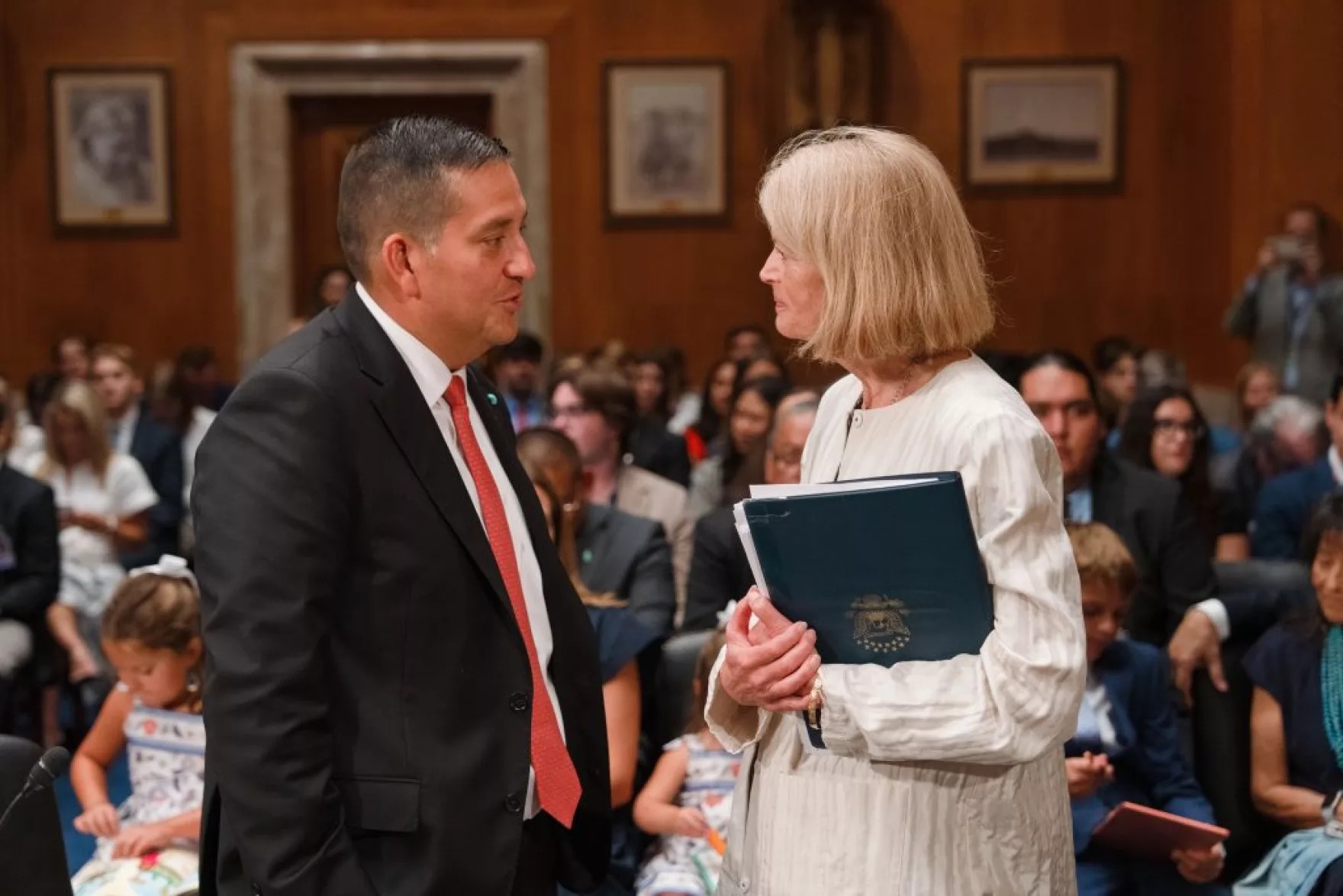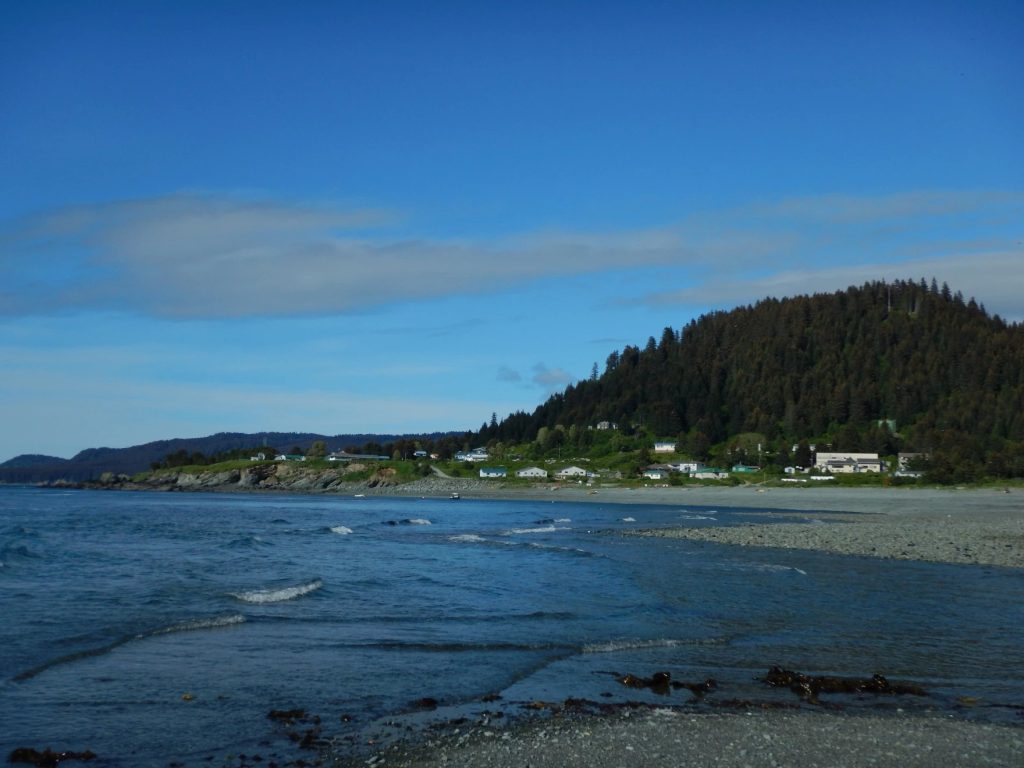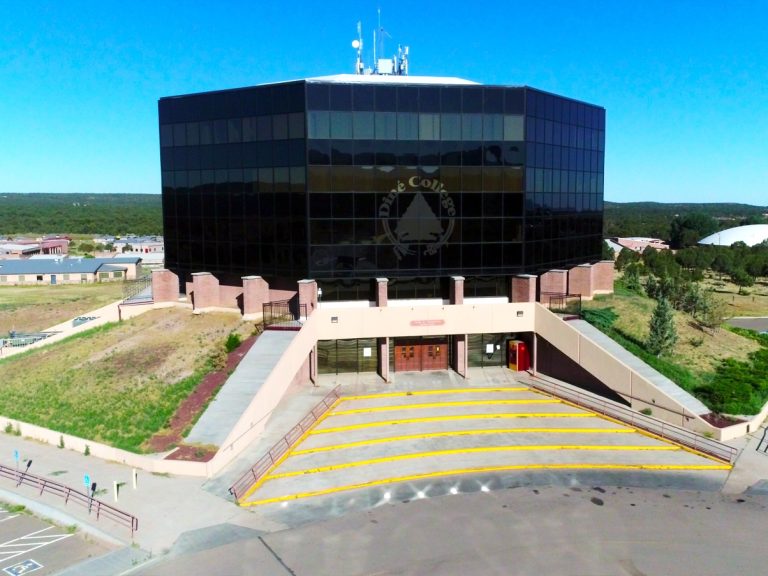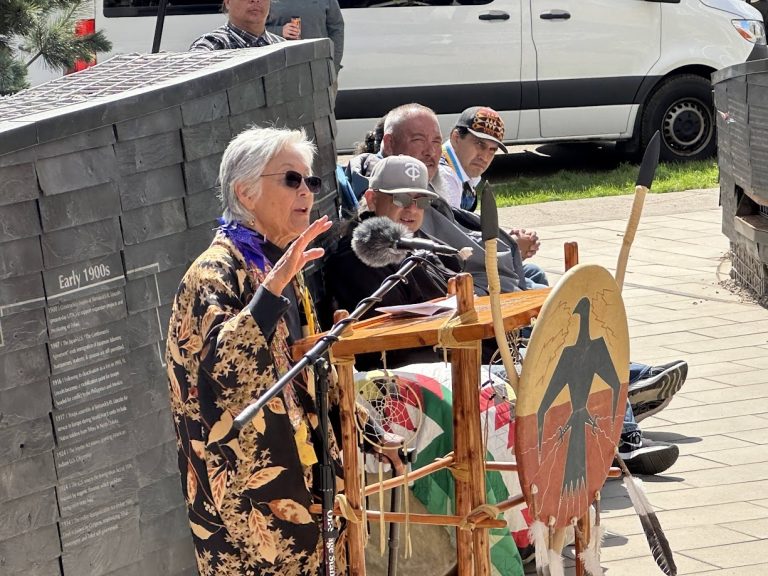Podcast: Play in new window | Download | Embed
Photo: Nanwalek in 2015. (Courtesy Chugachmiut)
Many clean energy initiatives across the country have been hit hard with federal funding freezes and abrupt cuts in recent months.
But two villages in Alaska are considering a project that would harness the energy of ocean waves, potentially for the first time in the U.S.
The Alaska Desk’s Alena Naiden from our flagship station KNBA has more.
Waves gently hit the shores of Kachemak Bay as ravens croak above on a cloudy night in July.
The small village of Port Graham is nested here, at the southern tip of the Kenai Peninsula.
The village may soon convert wave energy into electricity.
Dannielle Malchoff is the first chief of Port Graham.
“II have a lot of hope that this is going to be something great for our community.”
Chugachmiut is a consortium that serves Native tribes including Port Graham and its neighbour, Nanwalek.
The consortium announced it had partnered with an Australia-based company Carnegie Clean Energy in May to explore an ocean wave energy project for both villages.
Carnegie has several wave energy projects across the world, including Australia and Spain, but this would be the company’s first commercial installment in the U.S, according to Louise Richardson, Carnegie’s commercial analyst.
“One thing at Carnegie that we hope our technology will be able to service in the future is remote communities and isolated communities that might not have access to other forms of renewable energy options.”
Port Graham and Nanwalek have no roads connecting them to the rest of the state.
Energy costs there are high because the villages are at the edge of the grid and diesel for a back-up generator comes on a barge.
The electrical lines running from Homer are several decades old, don’t have enough capacity, and are unreliable.
Malchoff, with Port Graham, says the village loses power several times a month in winter and once every few months in summer.
“We have to use satellite phones if our power is out, which isn’t very convenient when you’re trying to relay and talk to doctors in the ER and you’re dealing with a patient.”
Malchoff says more reliable electricity from wave energy could solve some of these issues and, ideally, the village can sell any extra energy back to the grid and use that revenue on healthcare and education.
The plan is to place a wave energy device offshore from Port Graham.
The device will be submerged and tethered to the seabed, moving with the waves and converting power from that motion into electricity.
Permitting, testing, and installing might take close to five years.

Senate Committee on Indian Affairs Chair Lisa Murkowski (R-AK) welcomes William Kirkland to his confirmation hearing on July 17, 2025. (Photo: John Shinkle / U.S. Senate)
Back in February, President Donald Trump tapped a Navajo man to become the next Assistant Secretary for Indian Affairs.
As KJZZ’s Gabriel Pietrorazio reports, the nominee is one step closer to being sworn in as a top-ranking official, second only to Interior Secretary Doug Burgum.
William “Billy” Kirkland III was special assistant to the president and deputy director of intergovernmental affairs during President Trump’s first term.
In his recent Senate confirmation hearing, Kirkland took credit for helping Trump establish Operation Lady Justice, a federal task force on missing and murdered Indigenous peoples, and for inviting the Navajo Code Talkers to the Oval Office.
“I think that President Trump and Secretary Burgum love and appreciate and respect Indian Country. I think they care.”
U.S. Sen. Ben Ray Luján (D-NM) disagreed.
“Do you think the administration cutting billions from national programs that support Indian Country Native American communities lives, lives up to America’s trust responsibility?”
“Sir, I look forward, once confirmed, to working with you, your staff, this committee, and, most importantly, tribal leaders, to prioritize the money that Congress appropriates for the Office of Indian Affairs, to make sure it’s best and most wisely invested.”
If confirmed, Kirkland would be responsible for upholding tribal trust and treaty obligations on behalf of the federal government.
The Senate’s August recess may be canceled to finish confirming dozens of Trump nominees.
Get National Native News delivered to your inbox daily. Sign up for our daily newsletter today.



